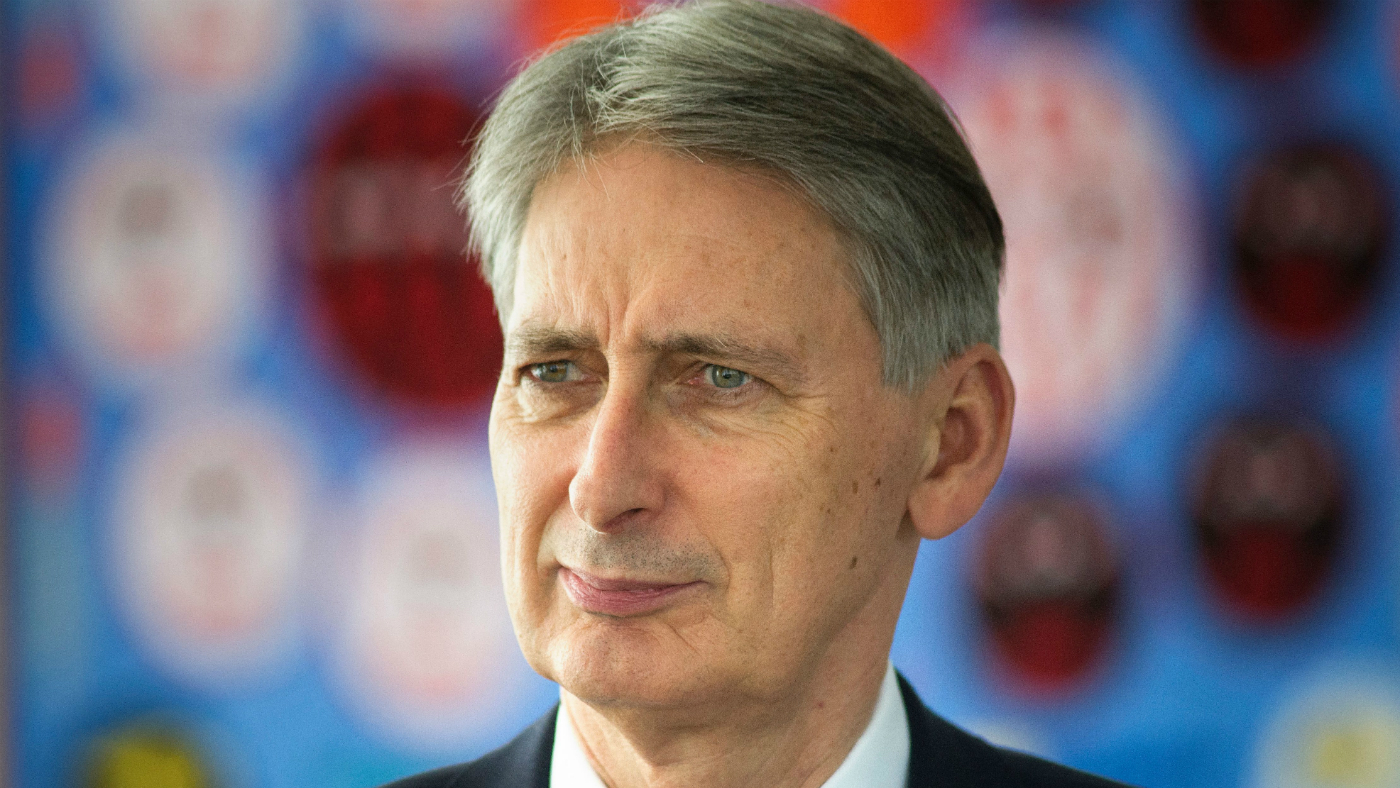Fiscal challenge 'likely to get harder', says Reuters
Deficit is lowest since financial crisis and on target – but bigger tests lie ahead

A free daily email with the biggest news stories of the day – and the best features from TheWeek.com
You are now subscribed
Your newsletter sign-up was successful
Government borrowing is at its lowest since the 2008 financial crisis, according to the Office for National Statistics.
In the year to March, borrowing fell by £20bn to £52bn as the economy proved more resilient than expected in the aftermath of the Brexit vote and growth helped drive tax receipts higher.
The news means the Chancellor, Philip Hammond, has avoided a potentially embarrassing slip-up before June's general election.
The Week
Escape your echo chamber. Get the facts behind the news, plus analysis from multiple perspectives.

Sign up for The Week's Free Newsletters
From our morning news briefing to a weekly Good News Newsletter, get the best of The Week delivered directly to your inbox.
From our morning news briefing to a weekly Good News Newsletter, get the best of The Week delivered directly to your inbox.
But although he has hit his budget deficit target for the 2016/17 financial year, the "fiscal challenge is likely to get harder", says Reuters.
The Office for Budget Responsibility expects borrowing to rise again this year to £55.2bn, "partly due to one-off factors but also because of slowing growth as consumers rein in spending in response to rising shop prices", says The Guardian.
John Hawksworth, chief economist at PwC, told the paper that the government would have to make difficult decisions on tax and spending.
He added: "In the longer term an ageing population and rising healthcare costs will also put pressure on the public finances".
A free daily email with the biggest news stories of the day – and the best features from TheWeek.com
The Chancellor has already hinted that the Conservative Party will drop its promise not to raise income taxes, VAT or national insurance contributions, arguing they limit his flexibility to manage the economy.
There are also doubts whether the government will stick to its "triple lock" pledge to increase pensions at the highest rate of inflation, in line with average earnings or by 2.5 per cent, whichever is highest.
Last month, Hammond was forced to abandon plans for a rise in self-employed national insurance contributions after an outcry from the press, the opposition and members of his own party, who said it broke the 2015 Tory manifesto pledge.
-
 ‘Restaurateurs have become millionaires’
‘Restaurateurs have become millionaires’Instant Opinion Opinion, comment and editorials of the day
-
 Earth is rapidly approaching a ‘hothouse’ trajectory of warming
Earth is rapidly approaching a ‘hothouse’ trajectory of warmingThe explainer It may become impossible to fix
-
 Health insurance: Premiums soar as ACA subsidies end
Health insurance: Premiums soar as ACA subsidies endFeature 1.4 million people have dropped coverage
-
 Labour shortages: the ‘most urgent problem’ facing the UK economy right now
Labour shortages: the ‘most urgent problem’ facing the UK economy right nowSpeed Read Britain is currently in the grip of an ‘employment crisis’
-
 Will the energy war hurt Europe more than Russia?
Will the energy war hurt Europe more than Russia?Speed Read European Commission proposes a total ban on Russian oil
-
 Will Elon Musk manage to take over Twitter?
Will Elon Musk manage to take over Twitter?Speed Read The world’s richest man has launched a hostile takeover bid worth $43bn
-
 Shoppers urged not to buy into dodgy Black Friday deals
Shoppers urged not to buy into dodgy Black Friday dealsSpeed Read Consumer watchdog says better prices can be had on most of the so-called bargain offers
-
 Ryanair: readying for departure from London
Ryanair: readying for departure from LondonSpeed Read Plans to delist Ryanair from the London Stock Exchange could spell ‘another blow’ to the ‘dwindling’ London market
-
 Out of fashion: Asos ‘curse’ has struck again
Out of fashion: Asos ‘curse’ has struck againSpeed Read Share price tumbles following the departure of CEO Nick Beighton
-
 Universal Music’s blockbuster listing: don’t stop me now…
Universal Music’s blockbuster listing: don’t stop me now…Speed Read Investors are betting heavily that the ‘boom in music streaming’, which has transformed Universal’s fortunes, ‘still has a long way to go’
-
 EasyJet/Wizz: battle for air supremacy
EasyJet/Wizz: battle for air supremacySpeed Read ‘Wizz’s cheeky takeover bid will have come as a blow to the corporate ego’